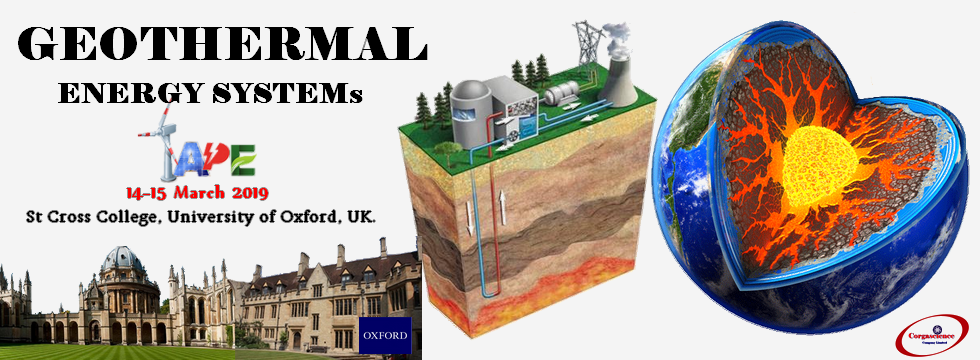

Dr. Juan Carlos Ríos Fernández
University of Oviedo Department of Energy, Spain
Talk Title
Integration capacity of geothermal energy in supermarkets through case analysisa
Talk Abstract
Aim: supermarkets are big energy users, reaching 3% of the total electricity in developed countries, generating large amounts of pollutants associated with energy consumption. This article, through the analysis of three actual cases, discusses the potential of economic and energy consumption savings in addition to the reduction of greenhouse gases that the use of geothermal energy can have in supermarkets. Material and case presentation: a systematic review of the literature in different databases and documentation of international conferences was conducted to obtain cases of direct application of geothermal energy in supermarkets. The three facilities were analysed in Germany, Portugal and Turkey. The German installation was carried out in Frankfurt where shallow geothermal technology for heating and cooling the supermarket was employed. The Portuguese installation was located in the region of Oporto where the ground source heat pumps to replace traditional air conditioning systems where applied. The Turkish installation in Mersin was the first application in Turkey which took advange of the storage of thermal energy in an aquifer integrated into a system of air conditioning and ventilation. Results: the German geothermal installation obtained a Coefficient of Performance or COP = 4 and an Energy Efficiency Ratio or EER = 4, the Portuguese one a COP = 5 and an EER = 4 and the Turkish one an EER = 4.18 vs. COP and EER of 2.6 obtained with a traditional air conditioning system. Discussion: the use of geothermal energy led to a 45% energy consumption saving in the German case, 30% in the Portuguese case and 36% in the Turkish installation. There was a reduction of 28% in CO2 emissions to the atmosphere in the German case, 30% in the Portuguese case and 36% in the Turkish installation. Conclusions: the payback period in geothermal energy range from 15 to 16 years depending on the geological area of implantation and the type of installation. When geothermal energy is used for supermarket air conditioning, the electricity consumption savings vary between 28%-36% which increase to 30-45% when combined with commercial cooling. The direct use of geothermal energy, using geothermal heat pumps, does not require specific geological conditions and can be used anywhere in the world. It has the advantage of being a stable renewable energy that does not depend on the climatic conditions, therefore it is interesting to combine it with other renewable energies which are only available intermittently. The geothermal energy satisfies, with normative requirements set in the norms of building for new constructions, as much in the use of renewable energies as in energy efficiency.
Short Biography
Dr. Juan Carlos Ríos Fernández is a PhD Mining Engineer founder of Proyeqta, engineering firm and technology consultancy specialized in the commercial sector and energy efficiency. He has developed and directed more than three hundred engineering projects and has been the technical manager of important Spanish companies. Dr. Ríos has been nominated at the awards for the best doctoral thesis at the University of Oviedo (Spain), he is currently a professor and researcher at this University. He has published in scientific journals, books and participated in international congresses.
Talk Keywords
Geothermal energy; Efficient facilities in supermarkets; Geothermal fluids; Reduction of greenhouse gas emissions; Ground source heat pump; Aquifer thermal energy storage.
Target Audience
Students, Post doctoral, Industry, Doctors and professors
Speaker-intro video
TBA






